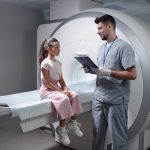Simple breakdown: new clues in fighting bowel cancer
Big news in the battle against cancer! A team from the University of Otago has made a big discovery.
They have found something important that...
Repurposing cancer drugs to fight neuroinflammatory diseases
Repurposing existing FDA-approved drugs for alternative treatments offers a faster route to introducing new therapies.
In a pioneering effort, researchers from Karolinska Institutet in Sweden...
Stop smoking early could help improve cancer survival
Lung cancer is responsible for one in five cancer deaths in the U.S., and smoking is largely to blame.
Since the number of smokers has...
New drug pair promises better treatment for colon cancer
In the world of cancer research, scientists are always hunting for better ways to fight this terrible disease.
Recently, researchers at the Center for Cancer...
AI can detect lung cancer more accurately, study finds
A recent study, published in the journal Radiology, has demonstrated that assistance from a high diagnostic accuracy artificial intelligence (AI) algorithm can significantly enhance...
Breaking down cancer: a fresh approach with old roots
Imagine trying to put together a jigsaw puzzle, but some of the pieces are missing or duplicated. That's how cancer cells are - they...
AI can understand animal cancer, improving human treatment possibilities
Understanding cancer isn't just about studying humans - it's a problem that spans across many species.
In a groundbreaking study led by The Institute of...
Scientists find a key to early detection of pancreatic cancer
A recent study led by the Johns Hopkins Kimmel Cancer Center has found that surveillance programs for high-risk individuals can detect pancreatic cancers early.
This...
A light-activated drug to fight cancer with fewer side effects
Chemotherapy is a common treatment for cancer. It works, but it often makes patients feel sick.
They can feel nauseous, lose their hair, and experience...
High-temperature cooking and cancer: what’s the link?
New research indicates a potentially significant and surprising reason why eating foods frequently cooked at high temperatures, like red meat and deep-fried foods, increases...










